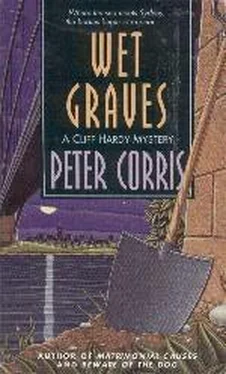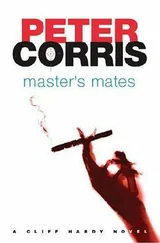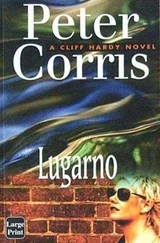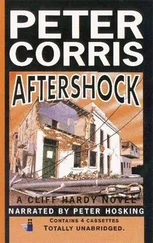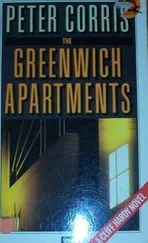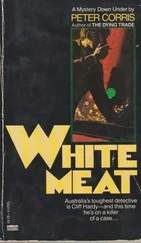Peter Corris - Wet Graves
Здесь есть возможность читать онлайн «Peter Corris - Wet Graves» весь текст электронной книги совершенно бесплатно (целиком полную версию без сокращений). В некоторых случаях можно слушать аудио, скачать через торрент в формате fb2 и присутствует краткое содержание. Жанр: Криминальный детектив, на английском языке. Описание произведения, (предисловие) а так же отзывы посетителей доступны на портале библиотеки ЛибКат.
- Название:Wet Graves
- Автор:
- Жанр:
- Год:неизвестен
- ISBN:нет данных
- Рейтинг книги:5 / 5. Голосов: 1
-
Избранное:Добавить в избранное
- Отзывы:
-
Ваша оценка:
- 100
- 1
- 2
- 3
- 4
- 5
Wet Graves: краткое содержание, описание и аннотация
Предлагаем к чтению аннотацию, описание, краткое содержание или предисловие (зависит от того, что написал сам автор книги «Wet Graves»). Если вы не нашли необходимую информацию о книге — напишите в комментариях, мы постараемся отыскать её.
Wet Graves — читать онлайн бесплатно полную книгу (весь текст) целиком
Ниже представлен текст книги, разбитый по страницам. Система сохранения места последней прочитанной страницы, позволяет с удобством читать онлайн бесплатно книгу «Wet Graves», без необходимости каждый раз заново искать на чём Вы остановились. Поставьте закладку, и сможете в любой момент перейти на страницу, на которой закончили чтение.
Интервал:
Закладка:
“Me? Heavens, no. I suppose you’re wondering why I’m living in a place like this?”
I took out my notebook. “Would you have the names of the society members? Yes, I’m wondering, but you don’t have to tell me if you don’t want to.”
“No objection at all. I’m retired from the public service. Had a lifelong interest in this area. Generations of Lithgows lived here until, well, until I broke the tradition. But now I’m back and I’m writing a book about the old place. What d’you think of that?”
“Sounds fine to me, Mr Lithgow. Are you sure about going into Mr Livermore’s room?”
“Of course, of course.” He pushed the door wide and we went into the room. It was rather dark and cold, being on the side of the house away from the sun. A small window let in a little eastern light. It was also obsessively neat and clean. The bed, with a thin, grey blanket on top, was made with military precision; all books and papers were set on shelves with aligned edges and right-angled piles. The few personal items on the chest of drawers and bedside table-comb, bus timetable, nail scissors-were clean and carefully laid out.
“An orderly man,” I said.
“Very. And a very nice old chap, too. But we all have to go. I just hope I get long enough to do this book. Well, Mr Kelly, I have my researches to get on with. Take as long as you like. I’m just across the hall if you want me.”
He ducked his head and almost bowed himself out of the room. I set about a systematic search, which Stan Livermore’s efficient habits made easy. He had a collection of books about the bridge, including those I’d seen in the library, and a good deal of related material- pamphlets, magazine articles, newspaper clippings and correspondence. What it all came to was an obsession, a fixed idea that the building of the bridge had exacted an enormous toll of lives and happiness. The dislocation and eviction of people from houses on the land resumed for the approaches, the closing of schools and businesses, the diversion of traffic-they were all documented. There was a voluminous recording of the accidents and deaths, and a minute tracing of con-sequences for wives and families. In the bottom drawer of the chest were files on scores of cases which ran from medical reports to correspondence with members of parliament. It was all alphabetical; all the handwriting was clear and legible; all clippings and photographs were annotated with dates and sources. It was too much of a good thing.
I worked through it using the only system I could think of-checking for names. Livermore appeared to have had no special interest in any of the bridge builders. The names came up-Ennis, Madden, Glover, Bradfield-but none was traced beyond the completion of the bridge. There were files on the sixteen men killed, but these petered out in the 1950s, as if twenty years was as long as anyone cared to remember them. The society had devoted itself to getting a suitable memorial for the dead, helping the families of some of the injured men and attempting to keep people who had worked on the bridge in touch with each other. It seemed a vain task. There was a large bundle of letters returned from the post office marked “address unknown”.
Stan Livermore himself had been a riveter who worked for five years on the job without suffering injury. I found a complimentary reference to Captain David Guthrie, for his intervention in the case of a worker who had been sacked for being asleep on the job. Captain Guthrie had demonstrated that fumes from an ill-maintained piece of equipment had overcome the man, who was reinstated. Casting about, I found no reference to anyone named Tracey or Burton or Lithgow. No Hardys either, or Broadways. I was running out of analytical tools fast, and aware that I might be running out of time. Lithgow had given me carte blanche, but that wouldn’t cut much ice if Betty Tracey returned and blew my cover. I did a last search for active members of the society as of the latest date and came up with six names. But the last time these individuals and Stan Livermore had convened a meeting was almost a year back. Still, it was something.
As I was tidying up the files I wondered if the old men had turned their attention to the new disruption caused by the harbour tunnel-the extra traffic through North Sydney, the noise of the tunnelling, the pollution of the harbour. Probably not. Their obsession was with the past and the people now being plagued by the tunnel-builders would have had as much trouble getting a hearing from them as from other Sydneysiders. In a way, it was the same story all over again-the greater good of the greater number and to hell with the rest.
I left old Stan’s room pretty much the way I’d found it and closed the door on his life and his life’s work. I’d filled several pages of my notebook and was still riffling through them when I knocked on Lithgow’s door.
“Come.”
Lithgow’s room was in marked contrast to Livermore’s; it had two windows which seemed to let in two hundred per cent more light and warmth. It was also very untidy. The bed was unmade and papers and books spilled across from a card table to the bed and onto the floor. Charles Lithgow was sitting on a bentwood chair at the card table, scribbling in a large bound notebook. As in Livermore’s room, the bed and chest of drawers were standard op-shop issue, but the bright tartan blanket thrown over the bed gave this room a lift. A head, shoulders and chest photograph of a man in military uniform was set on the chest of drawers at such an angle that the subject seemed to be in a position to survey all four corners of the room.
At my appearance, Lithgow pushed back his chair and reached down into a large leather briefcase at his feet. He held up a brown bottle with a yellow label. “Too early for a sherry, Mr Kelly?”
“When in Rome,” I said.
He laughed. “Too true. They start early around here, let me tell you. Not like in the old days of course, but the traditions linger. I’ll just get a glass. Have a seat.”
I sat in the only available place, on the bed. The room had very little vacant floor space. Beside the bed was a metal toolbox with the lid open. The few tools, hammer, heavy shifting wrench and lighter spanners, clamps and screwdrivers seemed appropriate to Lithgow’s strong, hard-handed grip. But he was a man of surprises; he got up and moved across the room to where a wine rack had been installed under the window ledge. I could see a dozen or so bottles in place, and an elaborate metal and wood corkscrew lying on top of the rack. Lithgow took two squat glasses from the window ledge and polished them with a tissue. He set them on the card table, cleared off the papers he’d been working on, and filled them with sherry from a bottle he selected with great care.
He handed me my glass. “Cheers.”
“Thank you.” I sipped the very dry sherry. Sherry’s not a bad drink; there’s hundreds of men in Sydney who’ll tell you the same. “Are you a wine buff, Mr Lithgow?”
“Heavens, no. Perish the thought. I just like a good snort after work or a… well, any time appropriate, really. Did you find anything helpful in old Stan’s room?”
I sipped some more sherry and turned a page or two in my notebook. “Possibly. No substitute for talking to the man himself, of course. I notice you call him old Stan, as Mrs Tracey did. Have you been in the house long, Mr Lithgow?”
“Oh, a while. Long enough to pick up the local habits, you know.”
“Mm. Were you here on the day he died?”
“I was, why?”
This was tricky ground. I couldn’t reveal that I’d been at the house earlier. My only recourse was to the Betty Tracey ploy again. I grinned. “Mrs Tracey told me that there was someone else here visiting Mr Livermore. Another five dollars, this cost me. But I suppose she might have meant you?”
Читать дальшеИнтервал:
Закладка:
Похожие книги на «Wet Graves»
Представляем Вашему вниманию похожие книги на «Wet Graves» списком для выбора. Мы отобрали схожую по названию и смыслу литературу в надежде предоставить читателям больше вариантов отыскать новые, интересные, ещё непрочитанные произведения.
Обсуждение, отзывы о книге «Wet Graves» и просто собственные мнения читателей. Оставьте ваши комментарии, напишите, что Вы думаете о произведении, его смысле или главных героях. Укажите что конкретно понравилось, а что нет, и почему Вы так считаете.
